EP 930 Primary Care Needs to Be Foundation of Health Care Reform
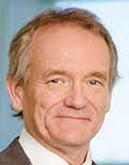 If more Americans regularly saw primary care doctors, many lives–and billions of dollars–could be saved. The preventative care they provide is crucial as a foundation to the entire health care system. Yet, the fee-for-service model is an inefficient one and should be replaced by a value-based approach, according to Dr. Troyen Brennan and adjunct professor of health policy and management at the Harvard T. H. Chan School of Public Health and the author of “Wonderful and Broken: The Complex Reality of Primary Care in the United States.” He goes on to explain the value-based model in our podcast and forecasts a movement in that direction in the coming years. And he pays great homage to primary care physicians in the book while recognizing that they are underpaid, overworked, and often incentivized to move into higher-paying specialties while patients face provider shortages and many live in ever-growing primary-care deserts.
If more Americans regularly saw primary care doctors, many lives–and billions of dollars–could be saved. The preventative care they provide is crucial as a foundation to the entire health care system. Yet, the fee-for-service model is an inefficient one and should be replaced by a value-based approach, according to Dr. Troyen Brennan and adjunct professor of health policy and management at the Harvard T. H. Chan School of Public Health and the author of “Wonderful and Broken: The Complex Reality of Primary Care in the United States.” He goes on to explain the value-based model in our podcast and forecasts a movement in that direction in the coming years. And he pays great homage to primary care physicians in the book while recognizing that they are underpaid, overworked, and often incentivized to move into higher-paying specialties while patients face provider shortages and many live in ever-growing primary-care deserts.
Podcast: Play in new window | Download
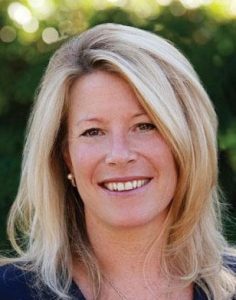 America has had a federal policy described as housing first when dealing with those persons who have no roof over the head and live on the streets. It is multifaceted problem which requires a bundle of services to help people get their lives in a better place. And while affordable housing is a big problem in America, the behavioral antecedents, like mental health and addiction, must be addressed as well. President Trump recently signed an executive order called Ending Disorder on America’s Streets, which is meant to put resources into a more comprehensive approach than what we have done in the recent years. It remains to be seen if this approach will result in greater focus on the range of services that will be required to address the surge of homeless people in America. Joining us to discuss the issues is Michele Steeb, the founder of the Free Up Foundation and visiting fellow at the Discovery Institute’s Fix Homelessness Initiative. She, along with David Flanagan, is the author of “Answers Behind the Red Door: Battling the Homeless Epidemic.”
America has had a federal policy described as housing first when dealing with those persons who have no roof over the head and live on the streets. It is multifaceted problem which requires a bundle of services to help people get their lives in a better place. And while affordable housing is a big problem in America, the behavioral antecedents, like mental health and addiction, must be addressed as well. President Trump recently signed an executive order called Ending Disorder on America’s Streets, which is meant to put resources into a more comprehensive approach than what we have done in the recent years. It remains to be seen if this approach will result in greater focus on the range of services that will be required to address the surge of homeless people in America. Joining us to discuss the issues is Michele Steeb, the founder of the Free Up Foundation and visiting fellow at the Discovery Institute’s Fix Homelessness Initiative. She, along with David Flanagan, is the author of “Answers Behind the Red Door: Battling the Homeless Epidemic.”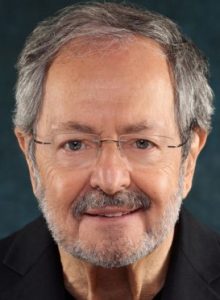 Seventy years after Brown vs. Board of Education and the movement to promote educational equality, race and class remain the most reliable predictors of educational achievement in America. In attempting to address this divide, school reformers have turned to solutions like charter schools, vouchers and other innovations designed to build more choice into the system. Yet, school choice and conservative and liberal approaches to it have changed over the years. The inside story of how the school choice movement emerged in the 1990’s presents a situation where Black activists joined forces with conservative lawmakers. Yet today’s school choice movement has evolved, championed by Republicans, conservatives, and faith-based organizations who have taken school choice to a very different place. And liberals have generally shown a skepticism about many choice options which might starve the public schools of resources. As test results continue to disappoint, new alliances and approaches may be needed. We’re joined by Joseph Viteritti, the Thomas Hunter Professor of Public Policy at Hunter College, and author of “Radical Dreamers: Race, Choice, and the Failure of American Education,” to discuss.
Seventy years after Brown vs. Board of Education and the movement to promote educational equality, race and class remain the most reliable predictors of educational achievement in America. In attempting to address this divide, school reformers have turned to solutions like charter schools, vouchers and other innovations designed to build more choice into the system. Yet, school choice and conservative and liberal approaches to it have changed over the years. The inside story of how the school choice movement emerged in the 1990’s presents a situation where Black activists joined forces with conservative lawmakers. Yet today’s school choice movement has evolved, championed by Republicans, conservatives, and faith-based organizations who have taken school choice to a very different place. And liberals have generally shown a skepticism about many choice options which might starve the public schools of resources. As test results continue to disappoint, new alliances and approaches may be needed. We’re joined by Joseph Viteritti, the Thomas Hunter Professor of Public Policy at Hunter College, and author of “Radical Dreamers: Race, Choice, and the Failure of American Education,” to discuss.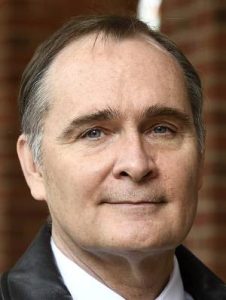 There’s so much that we don’t know about the life, topography and potential of our oceans since only 25 percent of these bodies of water have been mapped in any significant way. Given that oceans account for 70 percent of the Earth’s surface, we have a long way to go in determining the richness of the ocean and what it can mean to humans in helping to sustain our expanding food, energy and resource needs. Our guest, James Bellingham, Ph.D., is the executive director of the Johns Hopkins Institute for Assured Autonomy and the Bloomberg Distinguished Professor of exploration robotics and he is also the author of “How Are Marine Robots Shaping Our Future?” A contributor on the book is Claudia Geib. In it he describes the work of these autonomous underwater vehicles and how they are fast changing how humans explore and work in the ocean. It’s a competitive environment worldwide as these robots race to collect data vital for climate science, offshore energy, aquaculture and business and military applications. It’s an important conversation about a little discussed advance in science and has implications for our efforts to better understand humans’ prospects in deep space.
There’s so much that we don’t know about the life, topography and potential of our oceans since only 25 percent of these bodies of water have been mapped in any significant way. Given that oceans account for 70 percent of the Earth’s surface, we have a long way to go in determining the richness of the ocean and what it can mean to humans in helping to sustain our expanding food, energy and resource needs. Our guest, James Bellingham, Ph.D., is the executive director of the Johns Hopkins Institute for Assured Autonomy and the Bloomberg Distinguished Professor of exploration robotics and he is also the author of “How Are Marine Robots Shaping Our Future?” A contributor on the book is Claudia Geib. In it he describes the work of these autonomous underwater vehicles and how they are fast changing how humans explore and work in the ocean. It’s a competitive environment worldwide as these robots race to collect data vital for climate science, offshore energy, aquaculture and business and military applications. It’s an important conversation about a little discussed advance in science and has implications for our efforts to better understand humans’ prospects in deep space.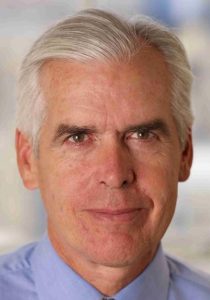 Frustration with government is widespread, but neither party has a vision for making things work sensibly, according to our guest, Philip K. Howard, the chair of Common Good, a nonpartisan organization aimed at simplifying government procedures and practices and the author of his new book, “Saving Can-Do: How to Revive the Spirit of America.” Hidebound rules delay projects and add costs which then keep important supports from government from getting to the people who need them. For years, Howard has described the reforms that are needed to empower people in government to use their good judgment and put aside the rulebook. He has classic examples of well-intended legislation never actually moving from good policy to timely practice and implementation, particularly in the sphere of infrastructure enhancements. In many ways, we are living off the good public works of our great grandfathers. And shouldn’t the reams of paperwork in health care be shredded to afford doctors more time to focus on patient care? DOGE wasn’t the answer, he says. Nor is the Democrat response to protect the status quo. He offers a way forward in his book and on this podcast.
Frustration with government is widespread, but neither party has a vision for making things work sensibly, according to our guest, Philip K. Howard, the chair of Common Good, a nonpartisan organization aimed at simplifying government procedures and practices and the author of his new book, “Saving Can-Do: How to Revive the Spirit of America.” Hidebound rules delay projects and add costs which then keep important supports from government from getting to the people who need them. For years, Howard has described the reforms that are needed to empower people in government to use their good judgment and put aside the rulebook. He has classic examples of well-intended legislation never actually moving from good policy to timely practice and implementation, particularly in the sphere of infrastructure enhancements. In many ways, we are living off the good public works of our great grandfathers. And shouldn’t the reams of paperwork in health care be shredded to afford doctors more time to focus on patient care? DOGE wasn’t the answer, he says. Nor is the Democrat response to protect the status quo. He offers a way forward in his book and on this podcast. Rare earth minerals may be a misnomer. While they are critical minerals to our modern, digital life, they are not that rare. The problem is finding them in concentrated places where it is economically and environmentally responsible to mine them. This group of 17 metallic elements is crucial for modern technologies due to their magnetic and electrical properties. They can be found in products as diverse as F-35 fighter jets, iPhones, wind turbines, televisions and night-vision goggles. While there are various ways of extracting them, mining is the primary method, though repurposing them from older digital devices is another approach. With all that said, their value to modern economies cannot be overstated. And given China’s stranglehold on the global market and the fact that America only has one functioning mine to date, has been a point of great friction in relations between the two nations. We explore all of these topics on today’s podcast with Ernest Scheyder, the author of “The War Below: Lithium, Copper and the Global Battle to Power Our Lives.”
Rare earth minerals may be a misnomer. While they are critical minerals to our modern, digital life, they are not that rare. The problem is finding them in concentrated places where it is economically and environmentally responsible to mine them. This group of 17 metallic elements is crucial for modern technologies due to their magnetic and electrical properties. They can be found in products as diverse as F-35 fighter jets, iPhones, wind turbines, televisions and night-vision goggles. While there are various ways of extracting them, mining is the primary method, though repurposing them from older digital devices is another approach. With all that said, their value to modern economies cannot be overstated. And given China’s stranglehold on the global market and the fact that America only has one functioning mine to date, has been a point of great friction in relations between the two nations. We explore all of these topics on today’s podcast with Ernest Scheyder, the author of “The War Below: Lithium, Copper and the Global Battle to Power Our Lives.”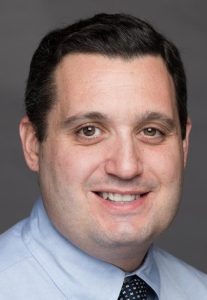 I’m old enough to remember when ABC, NBC and CBS dominated our television viewing and our consumption of electronic news, and that the viewer had to be in front of the television set at an appointed time to receive the information. Today, the gatekeeper, who once decided when and what type of news content you would see or hear, is a relic. News on your phone, social media, podcasts and all manner of sources put you in control of what you will read, see and hear. Newspapers, television and radio have become almost quaint and rarely utilized by anyone under a certain age. If you want to get lost in a fever swamp of biased coverage, it’s yours to consume. This portends that attracting large audiences will continue to become more difficult over time and, thus, the business model to maintain, say, CNN, will become more difficult, too. You will have to be a sophisticated consumer of information to determine the value of these new sources as old, traditional brands continue to eviscerate, replaced by, well, who really knows. In addition to these changes, the headwinds from the Trump Administration and its longstanding vendetta against ‘fake news’ continues unabated. These are changing times. To discuss it all with us is Ben Bogardus, Professor of Journalism and Chair of the Department at Quinnipiac University in Connecticut.
I’m old enough to remember when ABC, NBC and CBS dominated our television viewing and our consumption of electronic news, and that the viewer had to be in front of the television set at an appointed time to receive the information. Today, the gatekeeper, who once decided when and what type of news content you would see or hear, is a relic. News on your phone, social media, podcasts and all manner of sources put you in control of what you will read, see and hear. Newspapers, television and radio have become almost quaint and rarely utilized by anyone under a certain age. If you want to get lost in a fever swamp of biased coverage, it’s yours to consume. This portends that attracting large audiences will continue to become more difficult over time and, thus, the business model to maintain, say, CNN, will become more difficult, too. You will have to be a sophisticated consumer of information to determine the value of these new sources as old, traditional brands continue to eviscerate, replaced by, well, who really knows. In addition to these changes, the headwinds from the Trump Administration and its longstanding vendetta against ‘fake news’ continues unabated. These are changing times. To discuss it all with us is Ben Bogardus, Professor of Journalism and Chair of the Department at Quinnipiac University in Connecticut. Where did “The Little House on the Prairie” go? It’s probably in foreclosure and will be sold to a private equity company to build nondescript condominiums. In its place has grown up a powerful factory farming industry which has no particular affinity for the welfare of the farm animals they sell, the workers they often import or the environment they are wreaking havoc with. Our guest, author Will Potter, spent ten years researching the subject and he documents in his powerful book “Little Red Barns: Hiding the Truth from Farm to Fable,” a secret world of disinformation, corporate corruption and social control. Big Ag has made it difficult for us to see how the animals whose products we consume are treated, despite efforts by animal activists to show us the horrible conditions. Perhaps we don’t want to see and know why food is plentiful and by some standards more affordable in this modern era. If you’re one of the people who wants to know about the cultural shift in how we come about the food supply that makes its way into our homes, take a listen.
Where did “The Little House on the Prairie” go? It’s probably in foreclosure and will be sold to a private equity company to build nondescript condominiums. In its place has grown up a powerful factory farming industry which has no particular affinity for the welfare of the farm animals they sell, the workers they often import or the environment they are wreaking havoc with. Our guest, author Will Potter, spent ten years researching the subject and he documents in his powerful book “Little Red Barns: Hiding the Truth from Farm to Fable,” a secret world of disinformation, corporate corruption and social control. Big Ag has made it difficult for us to see how the animals whose products we consume are treated, despite efforts by animal activists to show us the horrible conditions. Perhaps we don’t want to see and know why food is plentiful and by some standards more affordable in this modern era. If you’re one of the people who wants to know about the cultural shift in how we come about the food supply that makes its way into our homes, take a listen.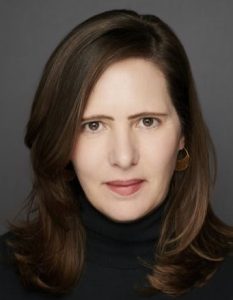 How has the MAGA movement in Trump 2.0 been so resolute in meeting its objectives, as stated in Project 2025, despite the President’s own disavowal of the document? The ideas of the unitary executive, the politization of the federal bureaucracy and the dismantlement of federal programs, such as USAID, has been so stark in contrast to Donald Trump’s first term. In her new book, “The Furious Right: The Making of the MAGA Right,” political theorist, Laura K. Field, describes the movement as a clustered and networked assemblage of three distinct but overlapping camps: The Claremonters, the Postliberals, and the National Conservatives. Whereas the old GOP establishment stood for free trade, social conservatism, and internationalism (rooted in anticommunism), today’s New Right stands for nationalist economics, social conservatism, isolationism, and anti-immigration. Can this coalition hand together and achieve its objectives? That’s the discussion we will have with the author today.
How has the MAGA movement in Trump 2.0 been so resolute in meeting its objectives, as stated in Project 2025, despite the President’s own disavowal of the document? The ideas of the unitary executive, the politization of the federal bureaucracy and the dismantlement of federal programs, such as USAID, has been so stark in contrast to Donald Trump’s first term. In her new book, “The Furious Right: The Making of the MAGA Right,” political theorist, Laura K. Field, describes the movement as a clustered and networked assemblage of three distinct but overlapping camps: The Claremonters, the Postliberals, and the National Conservatives. Whereas the old GOP establishment stood for free trade, social conservatism, and internationalism (rooted in anticommunism), today’s New Right stands for nationalist economics, social conservatism, isolationism, and anti-immigration. Can this coalition hand together and achieve its objectives? That’s the discussion we will have with the author today.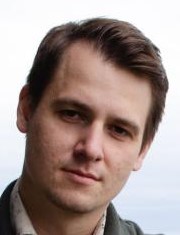 The success of AI will make some fortunes. Displace others from their professional pursuits. Enhance productivity for corporations. Take strain off of many in the medical field. And more. While we know that the impact of the colliding technologies which enhance deep learning by machines will have a profound impact, in truth we do not yet grasp fully the consequences of its adaption. How could we? While the technologies in play have been with us for years now, the data necessary to drive the enterprise how now amassed to a point where the text and images available can be captured by machines and used to do a host of functions. And until ChatGPT came along most of us were oblivious to this thing called AI. How will society and policymakers adapt to its yet undetermined effects? Will they get into the game early on or wait to see both the positive and ill effects, and by then, will it be too late. We pose all these questions and more with AI researcher, David Eliot, the author of “Artificially Intelligent: The Very Human Story of AI.” His explanations are as crystal clear as his logic and you do not have to understand the technology to appreciate what he has to say.
The success of AI will make some fortunes. Displace others from their professional pursuits. Enhance productivity for corporations. Take strain off of many in the medical field. And more. While we know that the impact of the colliding technologies which enhance deep learning by machines will have a profound impact, in truth we do not yet grasp fully the consequences of its adaption. How could we? While the technologies in play have been with us for years now, the data necessary to drive the enterprise how now amassed to a point where the text and images available can be captured by machines and used to do a host of functions. And until ChatGPT came along most of us were oblivious to this thing called AI. How will society and policymakers adapt to its yet undetermined effects? Will they get into the game early on or wait to see both the positive and ill effects, and by then, will it be too late. We pose all these questions and more with AI researcher, David Eliot, the author of “Artificially Intelligent: The Very Human Story of AI.” His explanations are as crystal clear as his logic and you do not have to understand the technology to appreciate what he has to say.